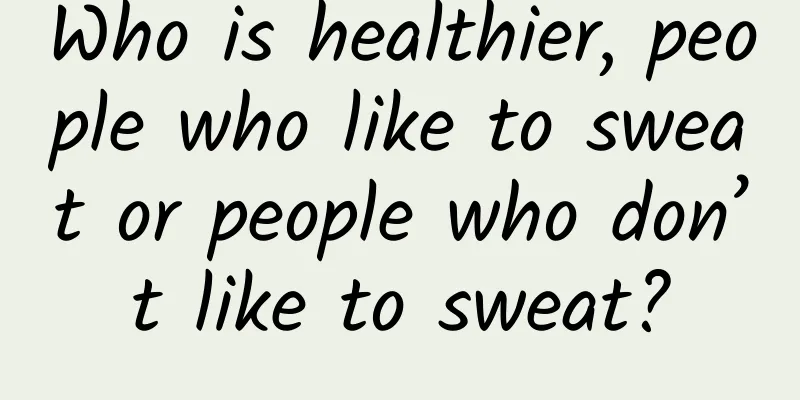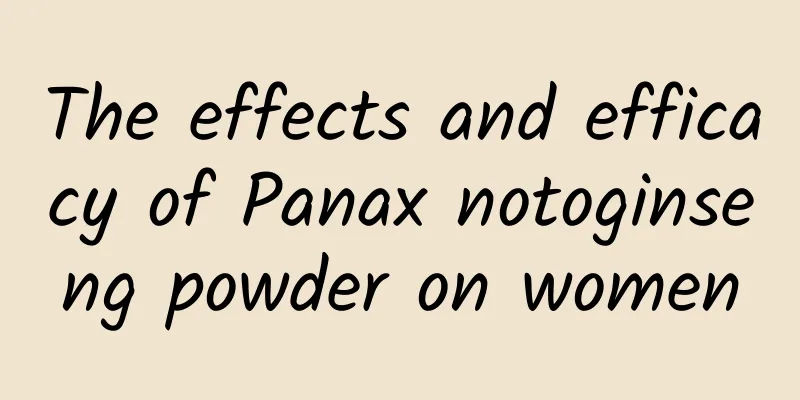Who is healthier, people who like to sweat or people who don’t like to sweat?

|
The weather is hot, and people sweat profusely and feel sticky as soon as they go out. Therefore, many people live a life of "air conditioning, WIFI and watermelon", and they wish they could hide in the "air conditioning room" every day. Some people even apply antiperspirant and other products when they go out to prevent sweat from getting their clothes wet. Some people think that sweating a lot is good, as it helps to detoxify and lose weight. Some people just don’t like to sweat… Sweat or not sweat, what is it like? Let's take a look. Why do people sweat? In our brain, there is an "air conditioner remote control", which is the hypothalamus, the body temperature regulation center. When the ambient temperature is low, it will instruct the brown adipose tissue to produce heat, the skeletal muscles to shiver (shiver all over when feeling cold), and the blood vessels to constrict, turning on the "heat production mode". When the ambient temperature is high, it will start the "cooling mode" by accelerating the evaporation of water and dilating blood vessels. The sweat glands are the most obedient "soldiers". They will sweat desperately, and when the sweat evaporates, it will take away heat and cool the body down. In addition to cooling down, sweating also contributes to the harmonious development of the body in many areas, such as maintaining skin health and balancing trace elements in the body. So why do some people sweat more and some sweat less? How much each person sweats depends mainly on the activity of the body's sweat glands to the sympathetic nerves and the strength of the body's response to the stimulation of the sympathetic nerves. It is mainly related to genes and one's own physical condition. Generally speaking, men sweat more easily than women; the heavier a person is, the more they sweat; and people sweat more easily in the afternoon than in the morning. In fact, sweating too much or too little is not a good thing. As mentioned above, sweating is a physiological phenomenon that is beneficial to the body in order to regulate body temperature. However, some abnormal sweating may be caused by certain diseases and requires medical treatment as soon as possible. 1. Hyperhidrosis Hyperhidrosis is divided into primary hyperhidrosis and secondary hyperhidrosis. If there is no other reason, excessive sweating on the whole body or in parts of the body (such as armpits, palms, soles of feet, face, etc.) will wet your clothes and shoes, seriously affecting your life. It is best to see a doctor. 2. Hypohidrosis Anhidrosis or hypohidrosis should be considered when the following symptoms occur: little or no sweating on the whole body or in a certain part of the body; accompanied by dizziness, muscle cramps or weakness, facial flushing, and feeling hot. From the perspective of traditional Chinese medicine, sweat is transformed from body fluids. The body fluids in the human body are transported to the body surface with the Yang Qi, and then evaporated by the Yang Qi and come out of the skin and muscle texture to become sweat. Body fluids are closely related to blood, so sweating too much or not sweating is not good. Do these three things to sweat healthily Modern research also shows that sweating can effectively enhance the body's own immunity and improve the body's ability to resist viruses and bacteria. But sweating too much is not good either. Do the following three things to achieve a balanced body. 1. Avoid excessive exercise Heart rate is a simple indicator of exercise intensity and duration, generally 60%~80% of the maximum heart rate (220-age). If young people's exercise heart rate reaches 160 to 180 beats per minute, the exercise intensity is relatively high and they sweat a lot, they should not drink too much water, otherwise it will increase the burden on the heart. It is recommended that the elderly's exercise heart rate be controlled at 120 to 140 beats per minute, until they feel slight sweat or some sweat beads. 2. Drink some acid to replenish water Drink some sour drinks appropriately, such as sour plum soup, which is made from black plum, which has the effects of astringing the lungs, astringing the intestines, and promoting salivation. It can tighten pores and prevent excessive sweating. In addition to sour plum soup, mung bean soup, honeysuckle tea, mint tea or mint lemon tea are all good choices, which have very good effects of replenishing fluid, promoting body fluid and removing heat. 3. Take a bath at an appropriate temperature after sweating The water temperature is not recommended to be too low, it should be close to or slightly higher than the body temperature. At this temperature, the body will not be stimulated by low temperature, the pores are normally open, and it is more conducive to taking away internal heat. Now you have the number! |
>>: Take the Sterculia lychnophora out of your cup quickly!
Recommend
The efficacy and function of wild boar meat
Do you know anything about wild boar meat? It is ...
Luo Ye: Great! It's the garbage collection team. We are saved!
The beauty of autumn lies not only in the picture...
How to fall in love with work again after returning from the New Year?
When you return to work after the holiday, Still ...
Is the Dark Star reliable? Explaining hypersonic vehicles
The American military blockbuster "Top Gun 2...
The efficacy and function of Koelreuteria paniculata
Koelreuteria compound pinnate is a traditional Ch...
How long should dandelion be applied externally?
It takes about 30 minutes or 60 minutes to apply ...
What are the medicinal values of rattan Panax notoginseng
Notoginseng is a very common medicine. It is also...
To know your fortune in the Year of the Dragon, do a dinosaur fortune-telling!
China is the country with the most dragons - we a...
Effect of washing hair with water boiled with Ligustrum lucidum
Most of us may not know much about Houttuynia cor...
The efficacy and function of the lotus
Glechoma longituba is a common Chinese medicine i...
What designs in restaurants that you think are normal are actually draining your wallet?
Planning and production Source: Dr. Curious Edito...
The efficacy and function of black fat hemp
As for black hemp, I think some people may have h...
When is the best time to eat wolfberry?
In our daily diet, wolfberry is the most common i...
Is our universe a drop of water in the "cosmic ocean"? The "multiverse" makes science fiction shine into reality →
Author: Duan Yuechu and Huang Xianghong On August...
Beware! Don’t reheat these 6 foods. Throw them away if you can’t finish them.
This article was reviewed by Pa Li Ze, chief phys...






![The efficacy and function of oak leaves [picture]](/upload/images/67ca165e043d2.webp)


![The efficacy and function of Zeqin[Picture]](/upload/images/67ca4fcdcd617.webp)